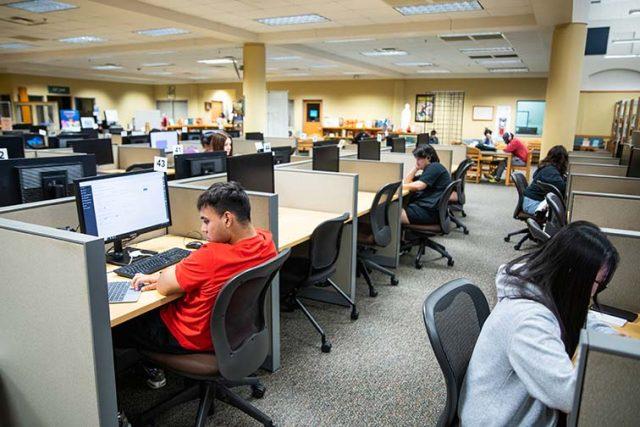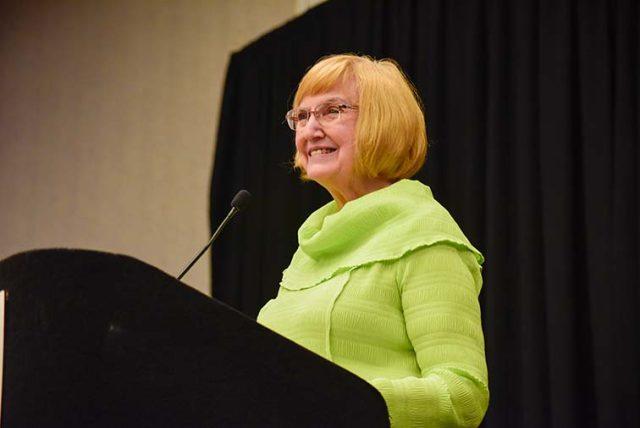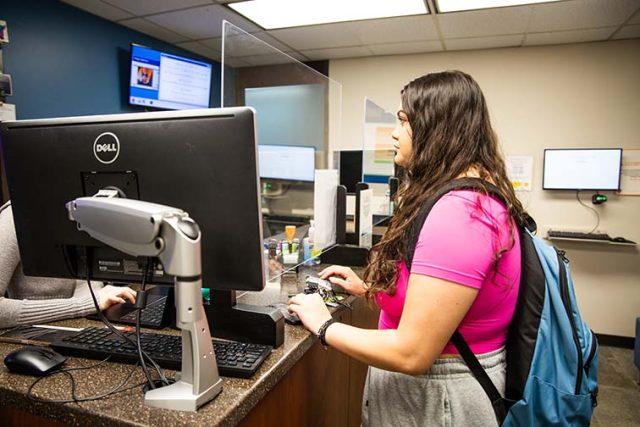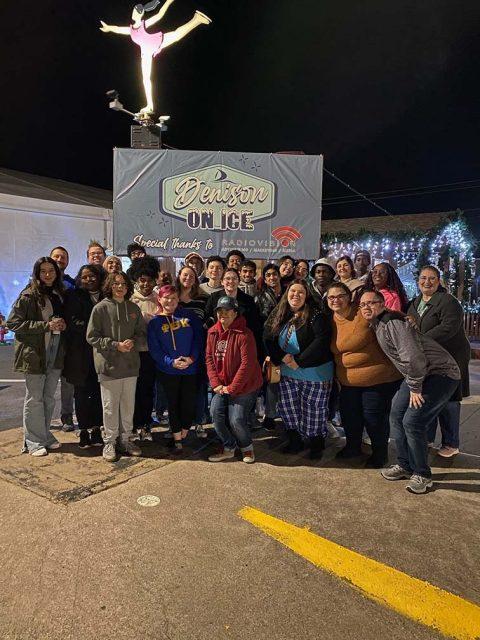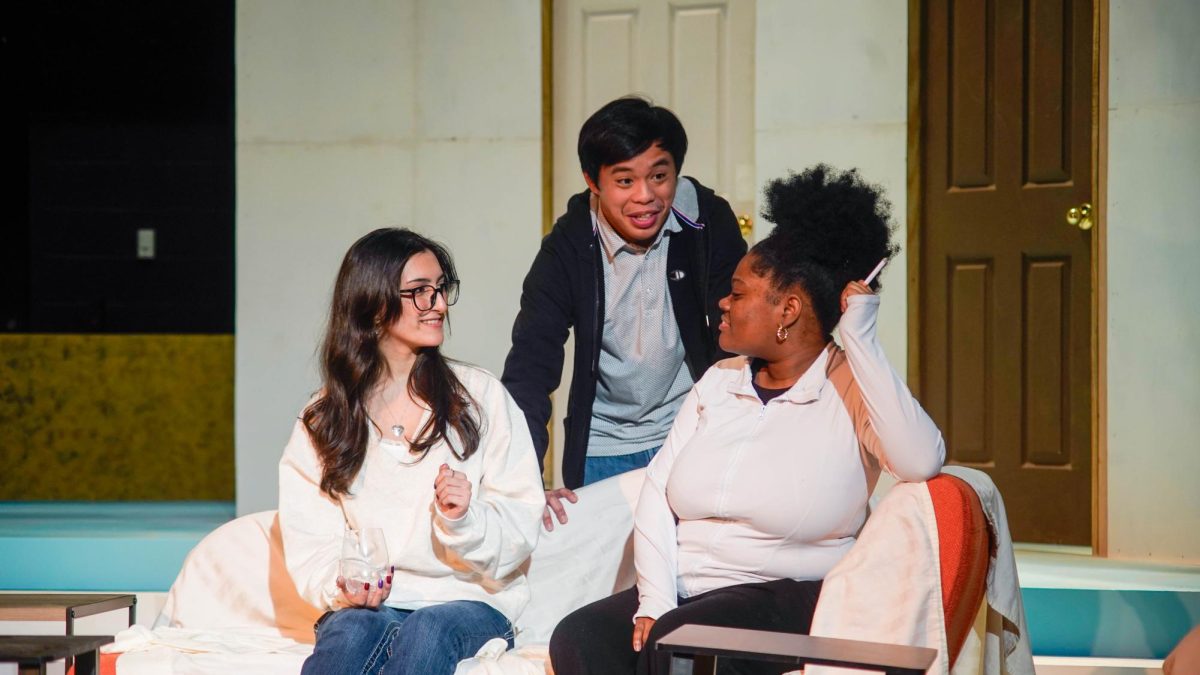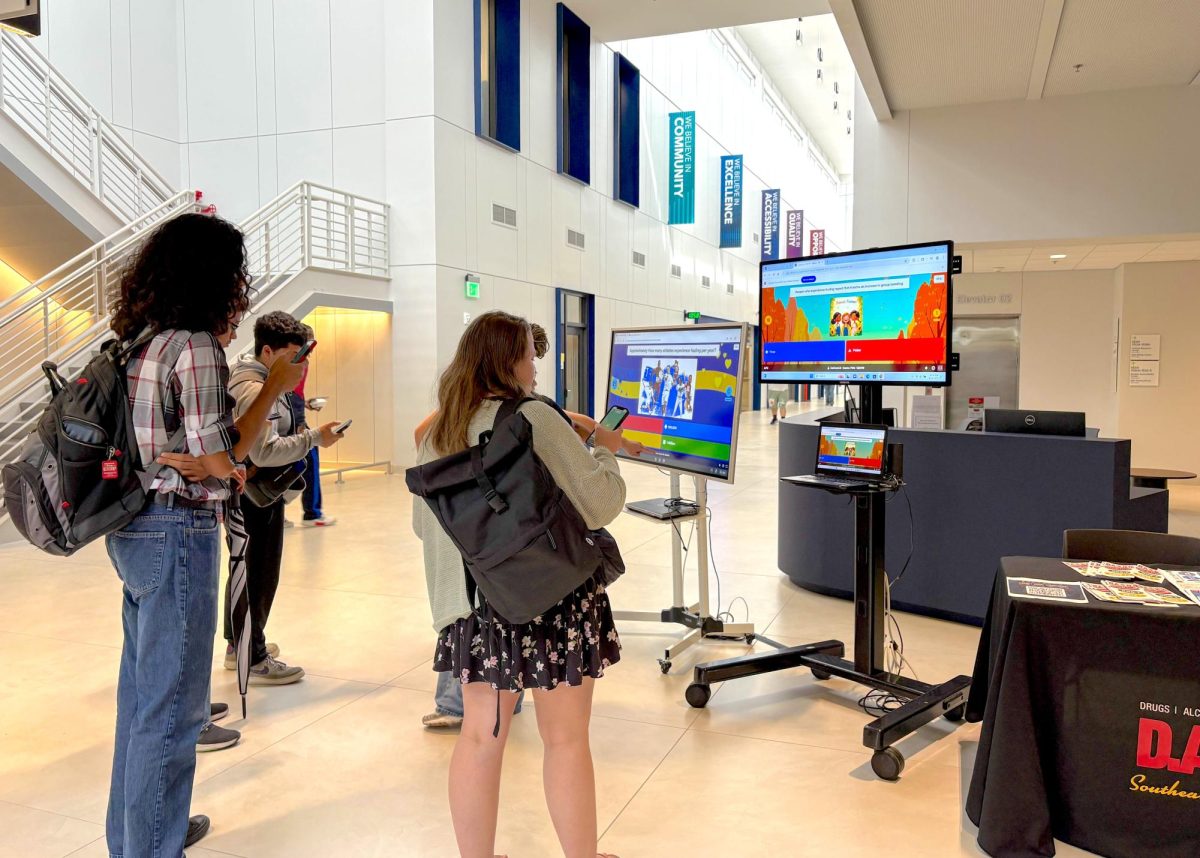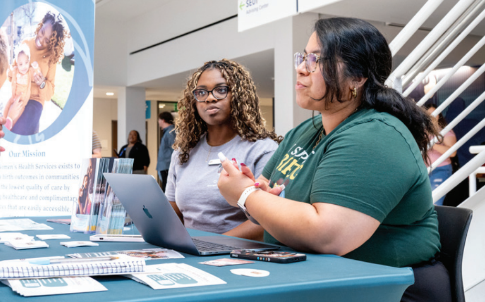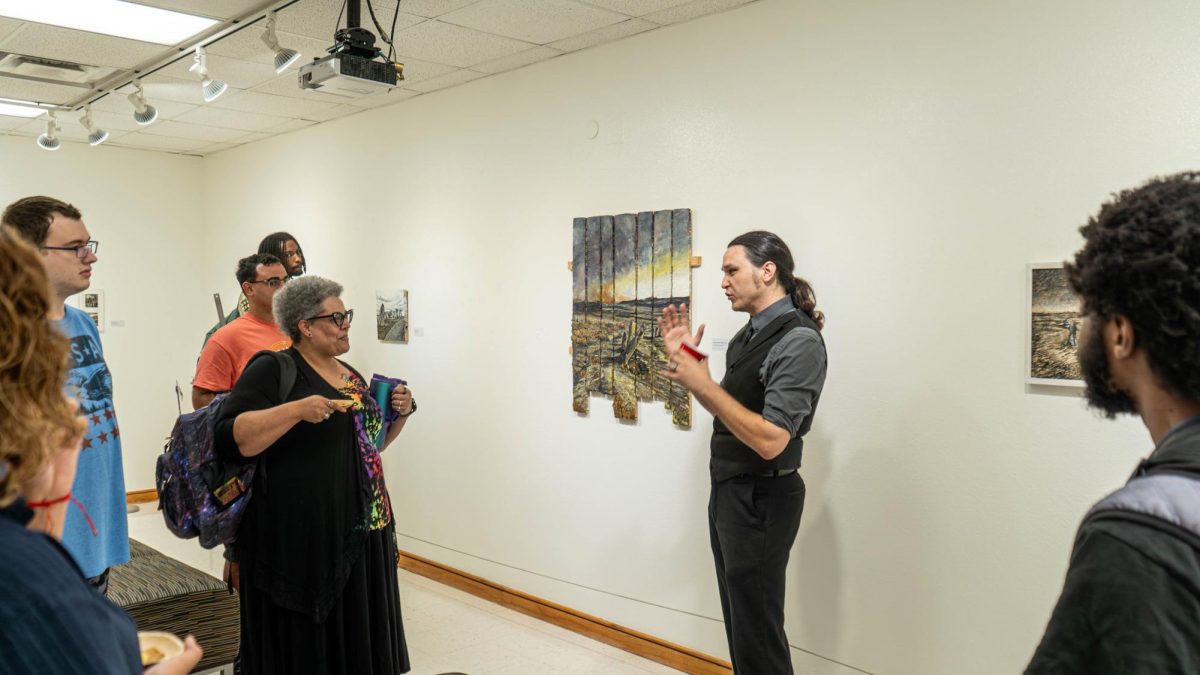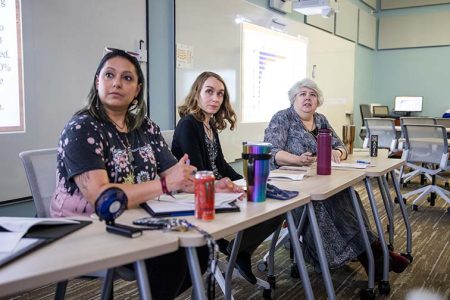
Photos by Joel Solis/The Collegian
NINA BANKS
campus editor
nina.banks@my.tccd.edu
Perched behind a decorative book of spells, English instructor Yvonne Jocks gestured to the screen behind her and recounted the lives of those accused in the Salem witch trials.
SE English faculty members hosted an event entitled “The (Mostly) Women of the Salem Witch Trials” on Mar. 28.
Jocks organized the event with the intention of dispelling the myths about the Salem witch Trials, as well as pointing out the disparities women face today with English instructors Madison Durapau and Leigh Anne Bramlett. The event happening during Women’s History Month was no coincidence.
“We chose Women’s History Month,” Jocks said. “We thought if we were going to do it for fall semester, we would do it in Oct. for Halloween.”
Jocks has always had an interest in witches, citing her earliest memories of witchcraft watching episodes of “Bewitched” during childhood.
“I’ve been interested in witchy stuff since I was a child,” Jocks said.
Students and teachers alike gathered to listen to the speakers. In the audience was Dawn Reaume, the daughter of speaker and assistant professor of English Erin Melyssa Boggs.
“I have always been interested in wicca, paganism, witches, all of that,” Reaume said.
Both Jocks and Boggs are descendants of key figures during the Salem witch trials. Jocks’ mother is related to the Wilkins family, who were prominent figures in the trials.
“I used Ancestry.com to follow back and see if I was connected,” Jocks said. “There were about 60 Wilkins — blood Wilkins, not just the in-laws. Considering how many of them there were in Salem village, I’m kinda relieved that not more of them got involved in the witch trials.”
Reaume acknowledged the several misconceptions of the Salem witch trials.
“A lot of people when they hear witches, they think “oh my god, they burn the witches,”” Reaume said. “Well in Salem, they did not burn the witches. While that was an idea that was kind of within it, that is actually from Europe and was most popular from the 1300s to the 1500s. So to say it happened in Salem is quite wrong. And some people attribute witch burnings and the idea of a witch to Salem, but witches — and the idea of witches — has existed for a long, long time.”
The presentation concluded with a series of statistics demonstrating the ever-present suppression of women’s voices. 80% of the accused during the trials were women. During the presentation, Jocks discussed the lack of belief toward women during this time.
“They went against legal precedents during the Salem witch trials, and none of those were decisions that these girls could have made,” Jocks said.
Boggs discussed the idea of “women as witch” and its consequences in society during the presentation.
“Women who exercise outspokenness, power are still often criticized and censored in society today,” Boggs said.
As she further explains this idea, she references pictures of significant women on the screen behind her.
“Of course Yoko Ono, who destroyed the Beatles didn’t she?” Boggs chuckled.
Reaume believed that we should be having more conversations about the impact of the Salem witch trials.
“I definitely feel like more conversations should be had because it was an integral moment of history to really learn,” Reaume said. “With women’s history, it’s just really important to realize what actually happened in those days. So you can learn how to tell — just like where we are today and where we come from.”
























